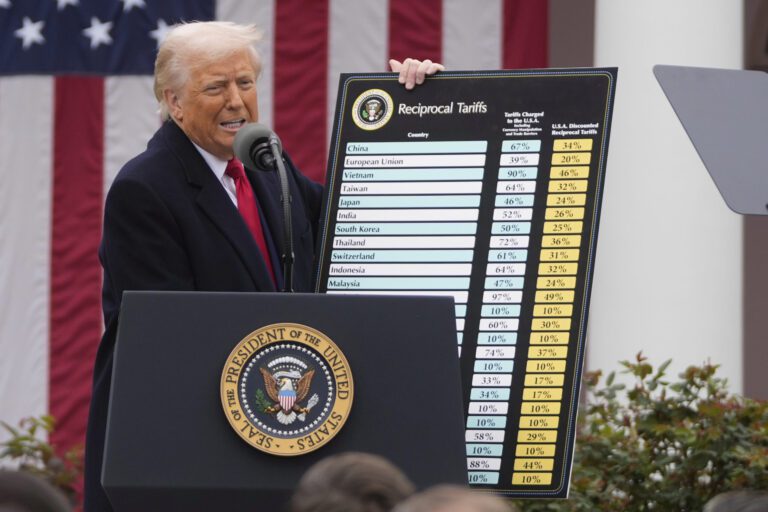The Future of Tariffs: A Legal Battle Over Presidential Authority
The economic landscape of the United States could undergo a significant shift as a federal appeals court prepares to hear oral arguments regarding President Trump’s ability to impose “reciprocal tariffs” under emergency authority. This case will determine not only the fate of these tariffs but also the extent of presidential power in economic matters.
Emergency Authority and Tariff Implementation
In recent announcements, President Trump articulated his intention to implement tariffs on imports from China, Canada, and Mexico—justifying these measures as essential to combat what he termed a national emergency related to the importation of fentanyl. In April, he further expanded his agenda with a proposal for global baseline tariffs, asserting that trade deficits posed a similar emergency. These tariffs are scheduled to take effect on August 1.
Legal Framework: The International Emergency Economic Powers Act (IEEPA)
The case will be adjudicated by the U.S. Court of Appeals for the Federal Circuit, which specializes in international trade. Central to the arguments is the International Emergency Economic Powers Act (IEEPA) of 1977, which grants the president powers to impose economic sanctions in response to “unusual and extraordinary threats” to national interests. However, key questions arise about the interpretation and scope of these powers, particularly concerning tariffs:
- Does the IEEPA authorize unilateral tariff imposition?
- Is there a constitutional limit to the delegation of tariff authority?
Branch of Power: The Role of Congress
The U.S. Constitution grants Congress the primary power to impose tariffs. Over time, lawmakers have delegated some of this authority to presidents. Critics argue that unlimited authority could undermine the legislative branch, as highlighted by a recent ruling from a three-judge panel at the U.S. Court of International Trade. The panel concluded that allowing such vast tariff powers would represent an improper abdication of legislative authority.
"An unlimited delegation of tariff authority would constitute an improper abdication of legislative power," the court stated.
Arguments For and Against Tariff Authority
The legal landscape is charged, with various parties weighing in on the implications of the tariffs:
-
Department of Justice: Claims that the president’s use of IEEPA powers is meant to enhance negotiating leverage in trade contexts.
-
Twelve Democrat-led states and five small businesses: Argue against the president’s authority, asserting that IEEPA pertains mainly to sanctions and embargoes, not tariffs.
- Conservative Think Tanks: Organizations like Advancing American Freedom argue that President Trump’s interpretation undermines the nondelegation doctrine, which prohibits Congress from delegating its legislative power. The Cato Institute asserts that while the president can adjust tariffs once enacted, he cannot impose them independently without congressional authorization.
Broader Implications
National Response and Judicial Review
As the appeals court deliberates, a ruling against the administration could lead to an appeal to the Supreme Court. One potential scenario includes the court’s examination of nationwide injunctions, particularly in light of recent limitations set by the Supreme Court on such measures.
In contrast, should the court favor President Trump, it could grant him extensive authority to further implement his economic policies through emergency powers. Historical context shows Trump’s administration has pursued this route before, seeking to leverage various emergency statutes for broader policy applications.
Conclusion: A Pivotal Decision Ahead
The forthcoming decision will not only impact President Trump’s trade agenda but will also shape the future of presidential power regarding economic sanctions and tariffs. Both sides are poised for a significant legal showdown, and the outcome could redefine the balance of power within the U.S. government.
For ongoing updates and legal analysis, visit Bloomberg Law or Reuters.
This article addresses the evolving legal and economic landscape surrounding President Trump’s tariff policies, highlighting the potential ramifications both domestically and internationally. The balance of power, interpretation of the IEEPA, and the role of the courts will be critical in shaping future economic strategies.


